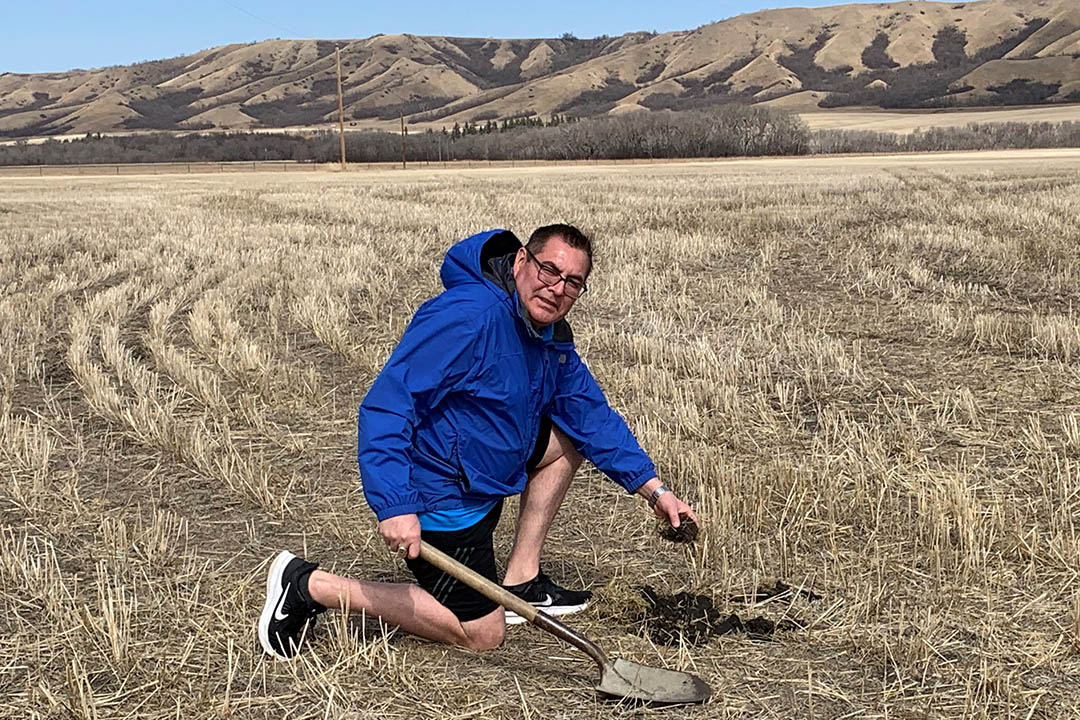
Kanawayihetaytan Askiy graduate supports First Nation communities’ land management
Robby Bear is graduating at Spring Convocation with the Kanawayihetaytan Askiy Certificate from the College of Agriculture and Bioresources at the University of Saskatchewan (USask).
By BRETT MAKULOWICHKanawayihetaytan Askiy means “let us take care of the land” in Cree. The program examines environmental, legal and economic aspects of land and resource management in Indigenous communities. Students learn about Indigenous rights, strategic planning, land use planning, traditional knowledge, resource management, intellectual property law and project management.
Bear is a proud member of Ochapowace First Nation. He chose to pursue the Kanawayihetaytan Askiy (KA) Certificate to help with his role as a consultant supporting First Nations to improve environmental issues and support economic development.
“I realized there is a need to build capacity within First Nations communities on land management and business practices,” said Bear. “Having effective land management and economic development governance in place will allow our communities to grow and create sustainable practices for future generations.”
As a consultant, Bear has participated in solid waste feasibility studies with several First Nation communities. Working with Indigenous Services Canada, he meets with communities, accesses their needs, and writes reports to improve their solid waste management. To build upon his knowledge to help First Nations, he enrolled in the KA program with funding from Indigenous Services Canada.
“My studies at USask have developed my knowledge base, skills and leadership,” said Bear. “I now have an enhanced understanding of government and legislation as it relates to First Nations, how the implementation of a land code supports self-governance, and proper research and business plan techniques.”
“During my classes, it became quite clear that no matter what region your First Nation community is located, there are so many similarities with respect to Aboriginal title and striving for self-governance and improving the quality of life.”
Due to the pandemic and remote learning, Bear was able to complete the one-year KA Certificate, at home in Yorkton, Sask. While his classes were online, he still had opportunities for hands-on learning experiences, such as collecting soil samples for his ecology class taught by Dr. Melissa Arcand (PhD).
“The course load was well blended,” Bear said. “My experience with the College of Agriculture and Bioresources and USask was very positive.”
Bear is following in his family footsteps by attending USask.
“I have been honored to have my two eldest children attend USask and while supporting my children in chasing their dreams, I realized that I’m not too old to further my education to support my First Nation and surrounding communities,” said Bear.
After graduation, Bear will support Ochapowace First Nation and surrounding First Nations in land management and share the knowledge gained from the KA program.
“I encourage all First Nations to participate in educational programs such as Kanawayihetaytan Askiy and USask as well as other capacity development initiatives to improve our communities for future generations.”
Re-posted from news.usask.ca.

